Black Men Writing to Live: Brothers' Letters
By Mychal Denzel Smith, Darnell L. Moore, Kiese Laymon, and Kai M. Green
What follows is a series of letters shared between four writers who have quickly become brothers. We have vastly different backgrounds, but discovered that we share so many similarities writing and living as black men in the US today.
I’m just waking up on the anniversary of Malcolm X’s assassination, the birthday of Nina Simone, and I feel small. I’m not comparing my life’s accomplishments to either of them. I’ve learned enough to stop making that mistake. But I still compare myself to who I think I should be by now and the vision is incomplete.
I’m 26 now, and for the first time I feel comfortable enough calling myself a man, but can’t help thinking of all the years I was confused about what that meant. I got into an argument with my pops when I was 21, I can’t remember what it was about, and he asked me “do you think you’re a man now?” and through my whimpering I told him, “No.” I was answering on his terms. I was still in school, I didn’t have any real bills, a job, a place of my own… you know, man shit. And the longer I went without any of those things, the less I felt like I would ever become a man, with his eyes constantly on me, asking without saying, “When are you going to get it together?”
Hell if I knew. I had this vague idea about being a writer because that’s the only skill I had (still is, but don’t sleep on my cookie baking abilities) with no earthly idea of how to make that happen. The days I didn’t have an appointment with my therapist, I spent in bed watching cable news and writing really horrible poetry. When I wasn’t having a panic attack, I was thinking about the last panic attack and anticipating the next one. All the while, the disappointment in my pop’s eyes was palpable. He was wondering where he went wrong and I was being crippled by the thought that I’d never be enough of man to make him proud.
I’m trying to pinpoint the moment I stopped worrying and started living. I can’t really. I still worry, but it doesn’t overwhelm me. Something broke along the way and I’m free. I can call myself a man now because I love and feel loved. And for me that’s all it takes.
I think of all the time I wasted not knowing that and I feel small. I’m looking at my text messages now. Yesterday, my pops told me he loved me. I’m 26, he’ll be 52 soon, and I think he’s told me he loves me more in the last year or so than during the entire rest of my life. I can’t help but think of what we missed.
I wish I had that time back. I wish I knew my worth a long time ago. But here I am.
With love,
Mychal
____________________________
“Living” is the most radical act that we, black men, can commit ourselves to.
Unlike you, I did not (and still do not) spend a lot of time in therapy even though I graduated with a master’s degree in clinical counseling and knew, the first time that I tried to end my life, that I needed help more than the helping profession needed me. But like you, I spent a lot of time in bed during my early twenties. Dreams, when I could actually sleep, were a welcome escape from…
Life: Staying awake, staying alive, meant that I needed to figure out how the hell I would persuade other folk in my life that I was straight and, therefore, acceptable and honorable as a black man. Fuck trying to live for my father who didn’t know that I wanted to die…who didn’t know what undergrad institution I was in at the time…who didn’t really know me…probably because he too was likely trying just as hard as me to live. Nah, I was too worried about living for the Father, that other God, who apparently hated me enough to let me eternally burn in “hell” because I preferred to love other men. Ain’t that torture? But my black mama knew best. She told me that I should not keep anyone in my life who refuses to love me.
Yet, if I were to seriously adhere to my mom’s advice, I would have had to drop out of school years ago (since a lot of folk in our inequitable educational system refuse to love us), quit engaging public health offices (because I walked in as a human in need of medical services and walked out as a patient whose subjective world was invisibilized by research lingo: MSM otherwise known as “men who have sex with men”), sleep in my bed all damn day (knowing that it is more likely that I will be stopped by police when walking to the store in Camden or Bed-Stuy rocking a fitted cap and carrying books than my white male neighbors who could be walking in a ski mask in the middle of summer and drop a dime bag on the ground in front of a walking police and his dog)…
See, this thing that we call “living” is as revolutionary as black gay writer/activist Joseph Beam’s call for black men to love other black men precisely because it is a command for us to counteract the very processes of annihilation that structural racism and patriarchy has taught us to love and replicate. We are experts in the art of killing because we know what it is like to be killed, maligned, have our spirits deadened, our bodies pillaged. We know. But we cannot demonstrate our knowing by rearticulating the very violences that have been used to murder us.
I am a black man and I am still alive. And, yes, I am a revolutionary because I daily choose to live! But I am a black man whose black mama’s body and spirit was terrorized by another black man’s hands and words. Sexism and patriarchy are not part of the revolution. I am a gender-maneuvering gay black man whose spirit was terrorized by other straight black men. Heterosexism and heteronormativity are not a part of our revolution. I am a black man who has ignored the plights of so many of my brothers. Separation because of difference and elitism based on class is not a part of the revolution. Indeed, my living is your living, is your father’s living, is my father’s living, is my mother’s living, is the stranger’s living, and it is the revolution.
Everyday we live we commit an act of revolution — an act of treason against a system that was never meant to guarantee our survival.
More love,
Darnell
_________________________
Your letter to Mychal took me back to a Baldwin essay. In “Alas Poor Richard,” an essay that I still find a bit too brutalizing of Richard Wright, Baldwin wrote, “Negroes know about each other what can here be called family secrets, and this means that one Negro, if he wishes can ‘knock’ the other’s ‘hustle’ – can give his game away.”
Long before I read the Baldwin essay, and long before I remember Tupac, Nas and Wayne giving lessons on how a love for brothers and riches was always more important than our love of black women, I understood the gendered expectation of the hustle. No matter what another black man I cared for did to a woman or a group of women, I was to never call him out or tell other people about his game.
I want to change.
The black man I spent most of my life with had an aneurysm two weeks ago. Bad books would call this black man a father figure. I try not to write bad books. This black man never told me he loved me. He never called me his son. He never told me that I could be better. And, truth be told, I never wanted or needed him to do any of that shit.
Femiphobic diatribes and other bad books have gassed us with this idea that black boys need the presence of black father figures in our lives. I’m sure I’m not the only black boy who realized a long time ago that my mother and her mother and her mother needed a loving partner far more than I needed a present father.
Mama disciplined me. She loved me.
Aunt Sue prayed for me. She loved me.
Grandma worked for me. She loved me.
That is why I am alive. Black children need waves of present multifaceted love, not simply present fathers.
Anyway, I believed this black man loved how my mother made him feel … until he didn’t. He loved her mind … until he didn’t. He loved her persistence … until he didn’t. I know my mother loved him, and loved what he tried to teach me. This black man tried to teach me that white folks were not to be emulated, that black life came from black farmers, and that a love of our people necessitated a love of the land we toiled, picked and raked. He tried to teach me to own myself, to never work for a white man. I learned later that owning myself was really different, and really, a lot easier than loving myself.
This black man physically and emotionally brutalized my mother, Darnell. I fought him for that but I never told anyone. My mother broke up fights between us. I wiped her tears, put ice on her swollen eyes and never talked about what this man did to her. This man was respected in our community and I could have knocked his hustle by telling the truth about him, to my mother to anyone who knew us, but I never did.
I knew not to. I knew that telling was not only spreading my Mama’s business; it was also a form of knocking this black man’s hustle.
Your letter really made me think about how not knocking another brother’s hustle was seen as black men loving black men. Your letter reminds me that any love that necessitates deception is not love. Your letter reminds me that when you don’t let love breathe, you can’t be surprised when you and those around you suffocate. We black men have suffocated our partners and ourselves for a long, long time. We black men have been suffocated. And I’d like it to stop. I want to work on loving you and Mychal and I want both of you to work on loving me. Please knock my hustle, Darnell. Please remain my friend when I knock yours. Please love me, brother, and encourage me to be a healthy part of healthy relationships, no matter what.
I am regretful and ready to love,
Kiese
__________________________
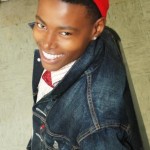 Dear Kiese, Darnell and Mychal,
Dear Kiese, Darnell and Mychal,
I THANK you. I THANK you for being vulnerable. I thank you for going deep and being unafraid to share that with me. All of these letters made me ask myself a question that I ponder over a lot—What do we do with the scars? Those of us that did not die, but still aren’t free. We struggle. We fight. We make a way out of no way. Everyday we prove that the impossible is possible just by living.
You are right, Kiese, trading worry for living, for being, is freedom—it’s about being present.
You are right, Darnell, loving ourselves is a revolutionary act—we have to practice because the preachers and their Bibles don’t always tell us so.
You are right, Mychal, love can’t be attained through ownership—love is a relationship that must be cultivated through honesty. The truth can hurt, but a lie will never set you free. I, like you, choose truth. Please love me enough to tell me the truth.
Can we heal ourselves?
Yes! And we are modeling that process here. It takes self-reflection.
These days when I look in the mirror, I see change. I see my hips narrowing. I see my jaw-line sharpening. I see the physical markers of Black manhood etch a divine design upon my body and I feel pretty.
But I wasn’t born this way. I was born a Black girl and I grew up into a Black woman. Once a queer hippie kid searching for peace in a New England boarding school because home could no longer hold me. Once a masculine identified lesbian, a femme-loving stud who was afraid to love other masculine folk—I was never told it was okay for us to love one another and that our love was valuable too. And today I write this as Black Transman, queer boi, lover of love. I chose this life.
But what do we do with the scars? I have scars. Visible scars from falling as a kid. Visible scars from nights of self-inflicted cutting in high school. Visible scars from my recent double mastectomy. Those scars are easier for me to deal with because I know where to find them. I know what might irritate the recent scars on my chest. But what of the scars that you can’t see?
You ever go so deep and remember the things you didn’t know you were reminding yourself to forget?
Sadness. It haunts me. It sits sometimes stale and I wish that I could move it, transition it.
I only recently learned that the sadness I carry is not just my own. It was inherited. Both my mother and father struggle with depression, but no one ever told me. I thought I was alone & still we struggle to talk about it—how things from way back when still hurt. And how we never got to take a break after losing so much.
Once I asked my mother about crack. I asked her about my Dad. I asked her how she loved him. I asked her why she made me love him even though he hurt us over and over.
She told me she felt shame. She told me that I was the only one she could talk to because everyone thought she was crazy to stay, but she loved him. That was her husband and my father and she knew his heart. Crack changed him. Crack destroyed so many Black love stories.
She told me that it was only in the last couple of years that she stopped sleeping with her purse under her pillow for fear of having it stolen. She hasn’t been with my Dad in over 6 years. Scars…
If you cared about it you had better lock it up in the back room. I remember the frustration of forgetting, forgetting that nothing was safe unless you locked it away. I remember when my big brother’s something got stolen. I remember how angry he was. I remember how guilty I felt because it was my father who was the addict. His father was not.
I remember God. God and my mother were the only people I was allowed to talk to. We kept secrets from the outside world—we built our own. But we needed more. We couldn’t save my Dad. I couldn’t save my mother. I learned the most radical thing I could do was figure out how to save myself. We all have to save ourselves. We all have to find our way towards healing and forgiveness. And it is a long road.
I am a Black transman who loves men and women. I am a man who is just now learning to love my femininity. I was a girl named Kiana once. She survived a summer of sexual abuse when she was 8. When she told the truth there was no counseling. There was no processing, only a fast girl that needed to be watched closely. I prayed to God for forgiveness. Guilt hurt and I started getting migraines. I moved with guilt in my heart, guilt as my center. I didn’t want to be bad, but I felt bad. I carried guilt when I left my mother with my father, but it was the only way I could get free. I had to leave.
I am Kai. I had to leave. I had to move into this new body.
Sometimes we don’t get what we deserve because we don’t know our own value.
WE deserve great love, laughter, poetry, sweetness, sunshine, and smiles.
WE deserve true love, open and honest.
We deserve healthy love—love, a home where you don’t have to hide what is most valuable in order to keep it.
I write with love for you, brothers, the agape kind.
<3<3<3Kai
_________________________________
Mychal Denzel Smith is a freelance writer, social commentator, and mental health advocate whose work has been seen online in outlets such as The Atlantic, Salon, Al Jazeera English, Gawker, The Nation, The Guardian, Ebony.com, Huffington Post, The Root, The Grio, and GOOD. His writing covers a range of topics, including but not limited to: politics, social justice, pop culture, Hip-Hop, mental health, feminism, and black male identity. He offers perspective on what it means to be young, black, and male in the age of Obama, reflecting on current cultural standards of black manhood and exploring new ideas for how to define black masculinity moving forward. He has been called to offer commentary for a number of radio programs (NPR, BBC Radio, WBAI New York City, KPFK Los Angeles, WVON Chicago, WURD Philadelphia, WCHB Detroit, others), HuffPost Live, and has also appeared on Current TV’s Viewpoint with Eliot Spitzer and the nationally syndicated Our World with Black Enterprise, hosted by Marc Lamont Hill. You can follow him on Twitter.
Kiese Laymon is a black southern writer, born and raised in Jackson, Mississippi. Laymon attended Millsaps College and Jackson State University before graduating from Oberlin College in 1998. He earned an MFA from Indiana University in 2003 and is the author of the forthcoming novel, “Long Division” (Agate Bolden) in March 2013 and a collection of autobiographical essays called “How To Slowly Kill Yourself and Others in America” (Agate Bolden) in April 2013. Laymon has written essays and stories for numerous publications including Gawker, ESPN.com, Esquire.com, Longman’s Hip Hop Reader, the journal, “Politics and Culture” and Mythium. He is a contributing editor at Gawker and frequently blogs at kieselaymon.com. Laymon is currently an Associate Professor of English and co-director of Africana Studies at Vassar College.
Kai M. Green is a scholar, poet, and filmmaker. He is a PhD candidate in the Department of American Studies and Ethnicity at The University of Southern California. Many of Kai’s academic and artistic endeavors are explorations of Black queer masculinities. He is interested in the ways in which queer people of color survive and thrive in a world where they are constantly policed because of race, class, gender and sexual deviations from the heteronormative. In Kai’s recent film, “It Gets Messy In Here” he examines the bathroom experiences of masculine of center people in order to illuminate the complex ways that race, gender and sexuality are simultaneously experienced. Kai is also working on a feature length documentary film entitled, “Marching Home.” This film is about Black LGBT visibility in Black communities. Kai is committed to fighting for social justice and equality for all and he uses his art and scholarship as a platform to do those things. You can follow him on Twitter: @Kai_MG.

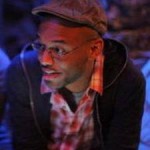
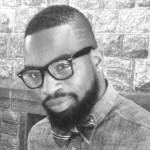
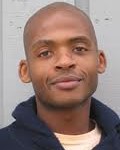


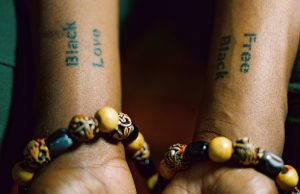
12 Comments